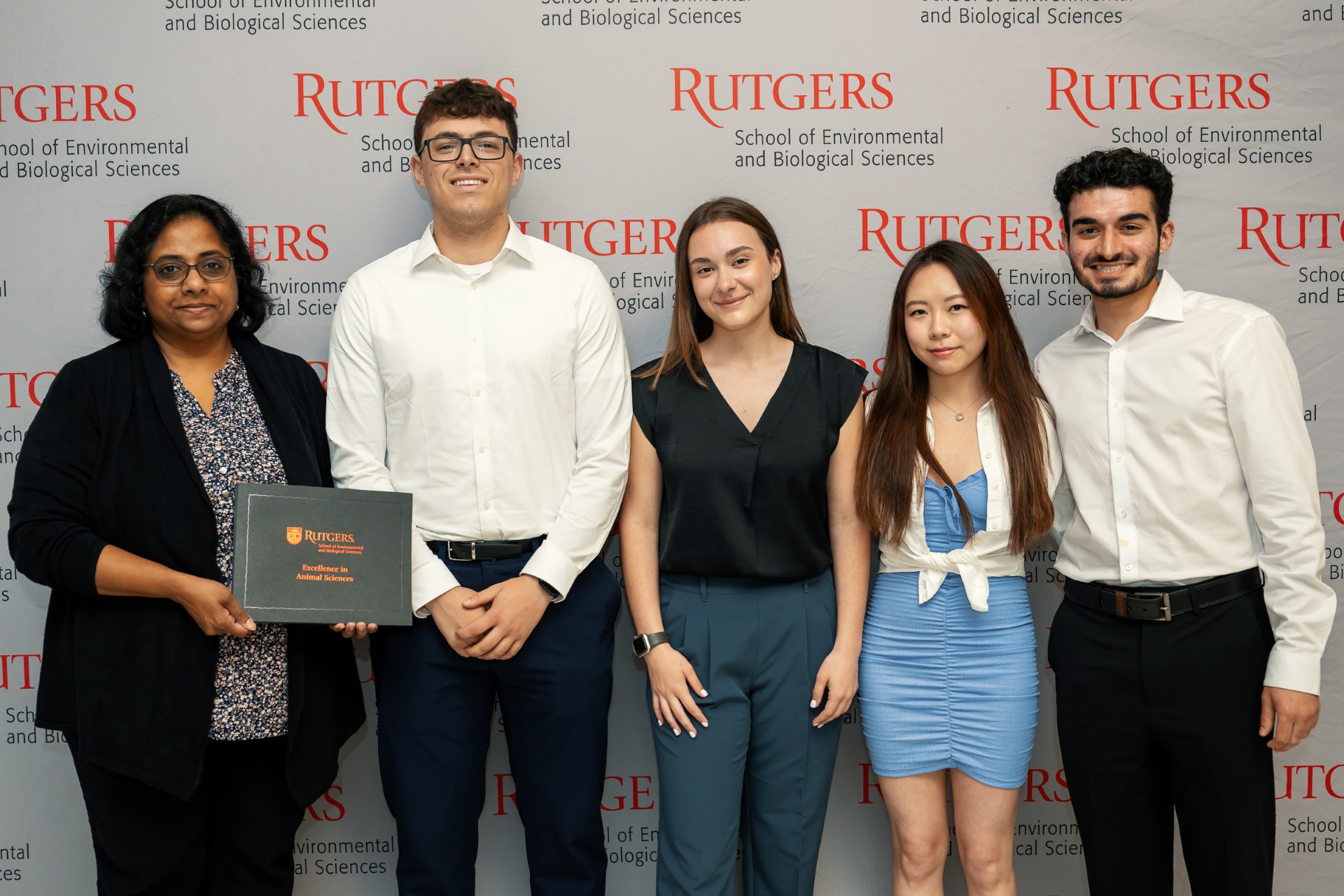
Department of Animal Sciences Undergraduate Program Director Aparna Zama, with Rutgers graduates (SEBS’24). L-R: Oliver Diggle who is currently enrolled at University of Pennsylvania Veterinary School; Alexis Garcia who is currently enrolled at The Ohio State University Veterinary School; Joel Kim and Paul Alves are planning to attend veterinary school. Photo credit: Office of Public Outreach and Communication – Chris Guttierez.
The U.S. Department of Agriculture (USDA) continues to make strides to diversify the agricultural workforce, and the Rutgers Department of Animal Sciences continues to answer the call.
Just over a year after being awarded funding through the NextGen grant for the Animal Science Discovery Program, Aparna Zama, undergraduate program director, has secured a five-year $250,000 U.S. Department of Agriculture, National Institute of Food and Agriculture (USDA-NIFA) Higher Education Multicultural Scholars Program grant for the Rutgers University Veterinary Learning and Preparation program (RU-VETLEAP).
RU-VETLEAP is designed to increase the number of Animal Science students from underrepresented communities accepted into DVM programs and those entering careers in USDA mission-critical areas of food, agriculture, and human and animal health.
Rutgers was one of five 2024 grant awardees to share in NIFA’s $1.1M investment by the Higher Education Multicultural Scholars Program to support 30 undergraduate students in animal science, nutrition and dietetics, food science, agribusiness, and other FANH science disciplines. The other awardees include Arizona Board of Regents at the University of Arizona, Division of Agriculture of the University of Arkansas System, Idaho State University and University of Florida.

Aparna Zama, Ph.D. Animal Science Undergraduate Program Director and Associate Teaching Professor. Photo by John O’Boyle.
The RU-VETLEAP program will provide tutoring, mentorship, experiential learning, research, and study abroad opportunities over the baccalaureate timeline along with structured summer semesters, allowing students to integrate their academic and experiential learning seamlessly.
Zama, an associate teaching professor in the Department of Animal Sciences and principal investigator on the grant, found that students with high employment hours were less likely to be accepted into vet school. As a result, a select number of students among this cohort will receive monetary assistance for RU-VETLEAP activities, allowing them to participate without having to balance a job with their studies.
“This program not only aspires to bridge the educational gap for underrepresented communities but also equips them to be competitive in the global veterinary field,” said Zama.
USDA-NIFA’s Higher Education Multicultural Scholars Program provides competitive grants to colleges and universities to increase the diversity of the food and agricultural workforce. The program provides scholarships to support mentoring, scientific training, and professional development activities for students who are pursuing a bachelor’s degree in the Food, Agriculture, Natural Resources, and Human (FANH) sciences or a Doctor of Veterinary Medicine (DVM) degree.

